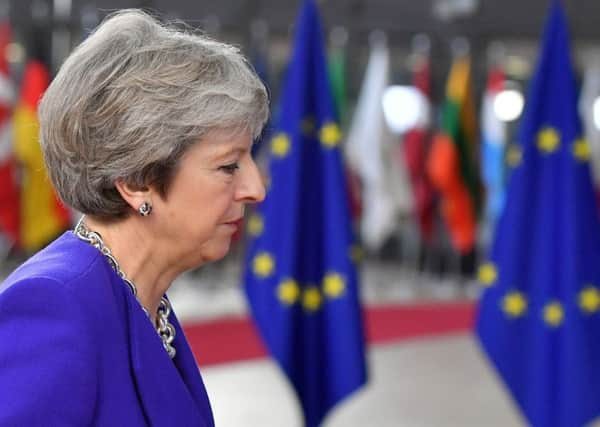Ian Swanson: It's not a smart time for a coup against May


Former army officer and “rising star” Johnny Mercer accused her of an “abject failure to govern”.
Hard-line Brexiteers in the Conservative party have been unhappy with Mrs May’s handling of the negotiations with Brussels for some time, but Mr Mercer’s comments were hailed as evidence that mainstream MPs are also deeply unhappy.
Advertisement
Hide AdAdvertisement
Hide AdThe trigger for this latest talk of deposing her seems to be the idea that the transition period after the UK’s departure from the European Union could be extended.
As well as the outrage from hardline Brexiteers, there was also concern from some Remainers at the move, with Scottish Secretary David Mundell calling for assurances that the UK would not be spending any longer inside the EU’s common fisheries policy.
And this followed the joint letter Mr Mundell and Scottish Tory leader Ruth Davidson had sent to Mrs May, making a stand over any agreement which treated Northern Ireland differently from the rest of the UK. They are worried that any such deal would feed Scottish demands for a different relationship with the EU.
They told Mrs May: “Having fought just four years ago to keep our country together, the integrity of our United Kingdom remains the single most important issue for us in these negotiations.”
Advertisement
Hide AdAdvertisement
Hide AdMr Mundell insisted their stand stopped short of threatening to resign, but both he and Ms Davidson had been staunch supporters of the Prime Minister up to that point. It seemed less then helpful for them to be making public statements about red lines as she faced increased attacks from her internal critics.
And the primacy they are giving to the Union seems not to be shared by many Brexit-supporting voters. Earlier this month academic research found that huge majorities of both English Tory voters and Leave supporters in Northern Ireland believed Scottish independence and the collapse of the Northern Ireland peace process were a price worth paying for Brexit.
As Ailsa Henderson, from Edinburgh University, one of those leading the research, pointed out: “If even unionists in Northern Ireland care less about the territorial integrity of the UK than pursuing Brexit, then it really raises questions about the type of Union we’re in, and indeed, what unionism means.”
The findings suggest much more complex divisions behind the Brexit vote than are usually acknowledged.
Advertisement
Hide AdAdvertisement
Hide AdHow long Mrs May can remain as Prime Minister has, of course, been a subject of almost constant speculation since the general election last year which proved such a disaster for her party. She has only survived so long because no-one could agree who should replace her.
There seem to be plenty aspirants for the role but it is difficult to see how toppling Mrs May at this stage would make anything better. A new premier would face exactly the same hurdles, roadblocks and splits.
A Tory leadership election just now would be an unforgiveable self-indulgence by a party whose divisions have already caused enough problems.